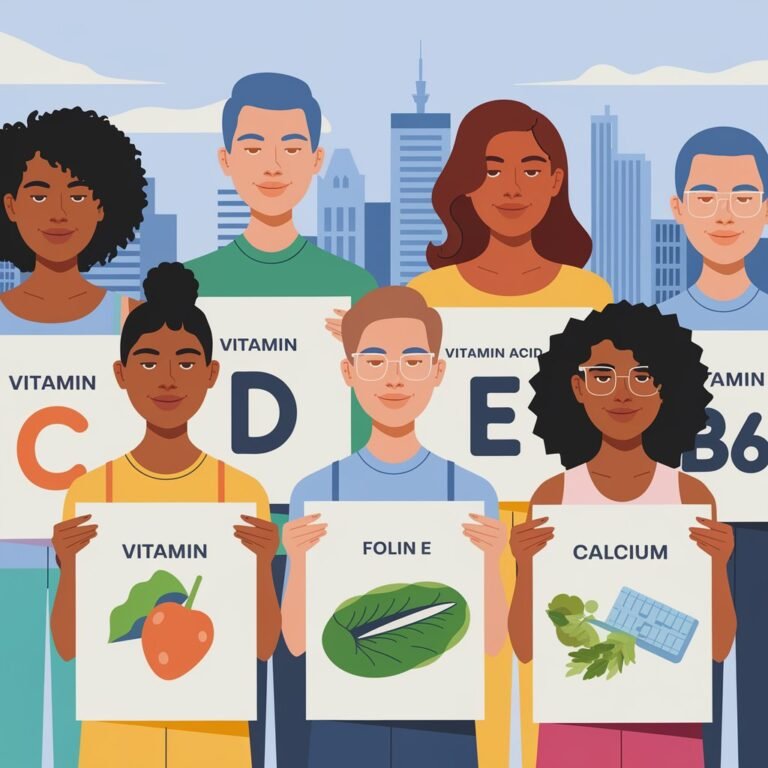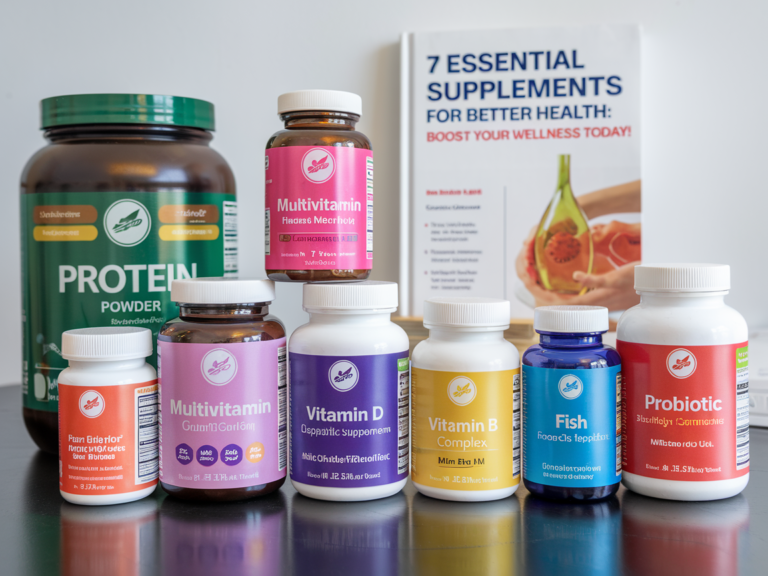
"Unlock the potential of essential supplements to support your health and well-being. Discover the 7 key nutrients that can transform your body’s performance."
Meta Description:
Discover the power of supplements in boosting your health. Learn about 7 essential nutrients that can transform your well-being and support overall health.
Introduction
In today’s fast-paced world, maintaining optimal health can be a challenge. While a balanced diet plays a crucial role in meeting our nutritional needs, it’s not always easy to get all the essential nutrients from food alone. This is where dietary supplements come in. They can help fill in the nutritional gaps in your diet and provide your body with the support it needs for optimal health.
From boosting your immune system to improving energy levels, certain dietary products can make a significant difference in your overall well-being. In this article, we’ll explore the 7 most essential nutrients that can enhance your health and help you feel your best.
The Role of Supplements in Health

Supplements are products that provide nutrients to support your diet and health. They come in various forms, including vitamins, minerals, herbs, amino acids, and fatty acids. While supplements are not a substitute for a healthy diet, they can be a helpful addition for people who may have deficiencies or require extra support.
Here are some key reasons why people turn to dietary support:
- Nutrient Deficiencies: If your diet lacks certain nutrients, these products can help make up for these deficiencies.
- Enhanced Performance: Nutritional aids can boost physical and mental performance, especially in athletes or those with high physical demands.
- Prevention and Support: These products can help support immune health, bone health, and other body functions to prevent illness or disease.
Let’s dive into the 7 essential supplements that can help boost your health and well-being.
7 Essential Supplements for Optimal Health

1. Vitamin D: The Sunshine Vitamin
Vitamin D is crucial for maintaining healthy bones and teeth and supporting your immune system. It’s often referred to as the “sunshine vitamin” because your body produces it when exposed to sunlight. However, many people, especially those living in areas with limited sunlight, may not get enough vitamin D from their diet or the sun.
Supplementing with vitamin D can improve mood, boost immunity, and support bone health, especially in older adults.
Best Sources:
- Vitamin D3 products
- Fatty fish (salmon, mackerel)
- Fortified dairy products
- Eggs
2. Omega-3 Fatty Acids: Heart and Brain Health
Omega-3 fatty acids are essential fats that play a critical role in brain function, heart health, and reducing inflammation. Since the body cannot produce omega-3s, they must be obtained from food or supplementation. These healthy fats have been shown to reduce the risk of heart disease, improve cognitive function, and support mental health.
Best Sources:
- Fish oil
- Flaxseeds and chia seeds
- Walnuts
3. Magnesium: For Relaxation and Muscle Function
Magnesium is involved in over 300 biochemical reactions in the body, including muscle and nerve function, energy production, and bone health. Many people are magnesium deficient due to poor dietary intake, and supplementation can help improve sleep, reduce anxiety, and support muscle health.
Best Sources:
- Magnesium products (Magnesium citrate, glycinate)
- Leafy greens
- Nuts and seeds
- Whole grains
4. Probiotics: Boost Your Gut Health
Probiotics are live bacteria and yeasts that are beneficial for your digestive system. A healthy gut microbiome is essential for overall health, as it affects digestion, immunity, and even mood regulation. Probiotics can help restore balance to the gut, improve digestion, and boost the immune system.
Best Sources:
- Probiotic strains
- Yogurt with live cultures
- Fermented foods (kimchi, sauerkraut, kefir)
5. Vitamin C: The Immune Booster
Vitamin C is a powerful antioxidant known for supporting the immune system, fighting free radicals, and promoting skin health. This vitamin is essential for collagen production and helps the body absorb iron from plant-based foods. Supplementation with vitamin C can help prevent colds, speed up recovery, and promote overall health.
Best Sources:
- Vitamin C products
- Citrus fruits (oranges, lemons)
- Bell peppers
- Broccoli
6. B Vitamins: Energy and Metabolism Support
The B vitamins are a group of water-soluble vitamins that play an important role in energy production, metabolism, and brain function. They are involved in the conversion of food into energy and help support healthy skin, hair, and eyes. B supplementation can be especially helpful for people who are stressed, fatigued, or struggling with a poor diet.
Best Sources:
- B-complex supplements
- Leafy greens
- Whole grains
- Eggs
7. Zinc: Immune System and Healing
Zinc is a trace mineral that plays a key role in immune function, protein synthesis, and wound healing. It is essential for the development and functioning of immune cells and can help reduce the duration of colds. Zinc also plays a role in skin health and can help with acne and wound healing.
Best Sources:
- Zinc products
- Red meat
- Shellfish
- Beans and legumes
How to Choose the Right Supplements

Choosing the right supplements can be overwhelming with so many options available. Here are a few tips to help you make an informed decision:
- Consult a Healthcare Provider: Before starting any supplementation regimen, it’s important to consult with a healthcare provider, especially if you have existing health conditions or take medications.
- Look for Quality Brands: Choose reputable brands that undergo third-party testing to ensure the products are safe, pure, and effective.
- Balance with a Healthy Diet: Supplements should complement a balanced diet, not replace it. Focus on eating a variety of whole foods to provide most of your nutrients.
Conclusion
Supplements are an effective way to support your health and fill in the nutritional gaps that may exist in your diet. Whether you’re looking to improve your immune function, boost energy, or support your heart health, the right supplements can make a significant difference in your overall well-being. Always choose high-quality supplements and consult with a healthcare professional to ensure they meet your needs.
Frequently Asked Questions (FAQs)
1. Are supplements necessary if I eat a healthy diet?
While a balanced diet should provide most of your nutrients, supplements can help fill any gaps, especially for people with specific deficiencies or dietary restrictions.
2. Can I take multiple supplements at the same time?
Yes, you can take multiple supplements, but it’s important to ensure that they don’t interact negatively with each other. Consult with a healthcare provider before combining supplements.
3. How long does it take to see the effects of supplements?
The time it takes to notice the effects of supplements can vary depending on the supplement and your individual health needs. Some may show results in a few weeks, while others may take months.
4. Are there any side effects of taking supplements?
Most supplements are safe when taken as directed. However, taking high doses of certain supplements can cause side effects, so always follow recommended dosages.





